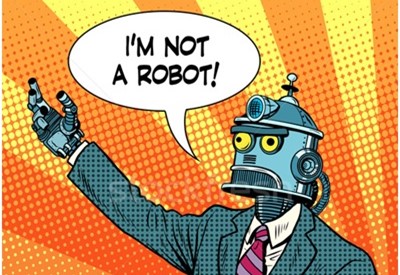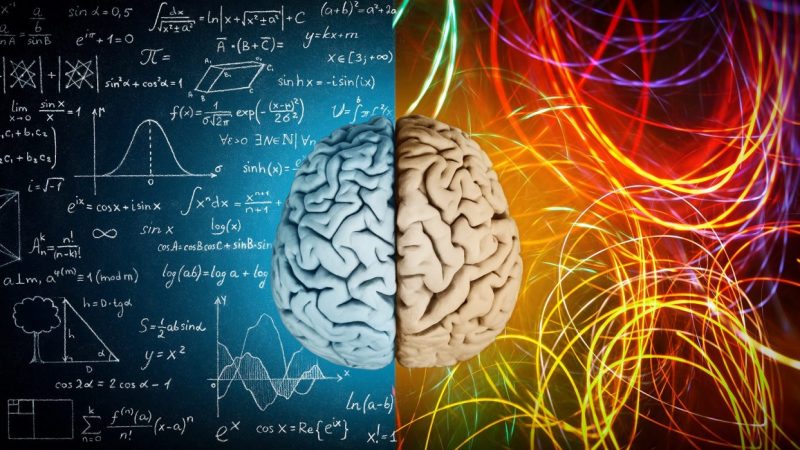HOW ARE KEY COMPETENCIES DEVELOPED?
The training sessions are designed to develop the participants of a specific training group in a goal-oriented manner, related to a key competence or topic.
Our trainings are practice-oriented and based on experiential learning.
Training is effective if the knowledge, tools and solutions learnt can be applied in practice. This is why we recommend to complement our key competence trainings with group coaching sessions.

HOW ARE KEY COMPETENCIES DEVELOPED?
The training sessions are designed to develop the participants of a specific training group in a goal-oriented manner, related to a key competence or topic.
Our trainings are practice-oriented and based on experiential learning.
Training is effective if the knowledge, tools and solutions learnt can be applied in practice. This is why we recommend to complement our key competence trainings with group coaching sessions.


“We don’t have box-ticking solutions to develop key competencies, instead we are eager to work in the ‘here and now’ to support the solutions to the participants’ current dilemmas and challenges.
During the training sessions, models and theoretical material related to a specific topic may be brought up, if they are relevant for certain competencies. However, the emphasis is on practice. We like to use the term expedition leading to describe our approach to training. While a tour guide takes their group from A to B on a fixed route, an expedition leader is not afraid of unexpected situations and exploring new landscapes, just like us.”
RITA GALLEN
Business, life and English language coach, trainer

“We don’t have box-ticking solutions to develop key competencies, instead we are eager to work in the ‘here and now’ to support the solutions to the participants’ current dilemmas and challenges.
During the training sessions, models and theoretical material related to a specific topic may be brought up, if they are relevant for certain competencies. However, the emphasis is on practice. We like to use the term expedition leading to describe our approach to training. While a tour guide takes their group from A to B on a fixed route, an expedition leader is not afraid of unexpected situations and exploring new landscapes, just like us.”
RITA GALLEN
Business, life and English language coach, trainer
ARE YOU PLANNING TO DEVELOP KEY COMPETENCIES?
Take part in a personalised development process designed by our team and acquire new skills, competencies and abilities!
ARE YOU PLANNING TO DEVELOP KEY COMPETENCIES?
Take part in a personalised development process designed by our team and acquire new skills, competencies and abilities!

STRENGTHENING KEY COMPETENCIES
In the development process, participants’ self-awareness and self-reflection deepen as they have the opportunity to get feedback from others on how they were perceived, how they affected the others, and as trainers with a coaching approach we encourage participants to listen inward and to recognise their own feelings.

STRENGTHENING KEY COMPETENCIES
In the development process, participants’ self-awareness and self-reflection deepen as they have the opportunity to get feedback from others on how they were perceived, how they affected the others, and as trainers with a coaching approach we encourage participants to listen inward and to recognise their own feelings.
STRUCTURE OF A SESSION
STRUCTURE OF A SESSION
1. Introduction, with an opening task
1. Introduction, with an opening task
2. What will make the given module useful – Establishing specific learning objectives and commitments
2. What will make the given module useful – Establishing specific learning objectives and commitments
3. Pair and small group tasks to introduce the topic
3. Pair and small group tasks to introduce the topic
4. Presentation of models related to the topic, putting them into practice
4. Presentation of models related to the topic, putting them into practice
5. Structured situational exercises at group level
5. Structured situational exercises at group level
6. Trainer presentations with movie clips
6. Trainer presentations with movie clips
7. Playful exercises on the topic
7. Playful exercises on the topic
8. Processing individual cases, topics and dilemmas with group coaching elements
8. Processing individual cases, topics and dilemmas with group coaching elements
9. Development of individual and group action plans
9. Development of individual and group action plans
AREAS DEVELOPING KEY COMPETENCIES
AREAS DEVELOPING KEY COMPETENCIES
MENTAL POWER
Developing self-awareness and well-being areas:
—
- Self-awareness, cooperation, communication
- DISC/ PCM/ Enneagram based programmes
- Emotional intelligence
- Stress management
- Positive psychology in practice
- Trust and self-confidence
- Work-life balance
- Resilience
EFFICIENCY POWER
Efficiency-enhancing leadership development
—
- TEDx-like presentation
- Presentation techniques
- Effective negotiations
- Customer relationship, customer management: handling difficult situations
- Meeting effectiveness
- Personal brand
- Time management and personal effectiveness
- Attention management
- Influence and impact
- Interviewing technique
- Project management
INNOVATION POWER
Innovative thinking and agility development
—
• Introduction to agility
• Design thinking
• Solution-focused thinking
• Growth mindset
• Change management
• Creativity and organisational innovation
• Knowledge management
SOCIAL POWER
Developing connections and relationships
—
• Assertiveness
• Constructive communication
• Conflict management
• Intergenerational cooperation
• Feedback Culture
MENTAL POWER
Developing self-awareness and well-being areas:
—
- Self-awareness, cooperation, communication
- DISC/ PCM/ Enneagram based programmes
- Emotional intelligence
- Stress management
- Positive psychology in practice
- Trust and self-confidence
- Work-life balance
- Resilience
EFFICIENCY POWER
Efficiency-enhancing leadership development
—
• TEDx-like presentation
• Presentation techniques
• Effective negotiations
• Customer relationship, customer management: handling difficult situations
• Meeting effectiveness
• Personal brand
• Time management and personal effectiveness
• Attention management
• Influence and impact
• Interviewing technique
• Project management
INNOVATION POWER
Innovative thinking and agility development
—
• Introduction to agility
• Design thinking
• Solution-focused thinking
• Growth mindset
• Change management
• Creativity and organisational innovation
• Knowledge management
RÓLUNK MONDTÁK
Over the years of working with the Coaching Team trainers, I have experienced the utmost professionalism. They have always been flexible in their efforts to provide training and development most tailored to the company and its needs. The feedback from our colleagues has always been positive.
I recommend it to those who lack self-confidence, who cannot move on from some trauma or grievance. However, they are not waiting for a miracle but want to do something for themselves. They are receptive to outside opinions and suggestions.
What can I think of Rita in 5 words? Inspiration, motivation, networking, honesty, openness. And who do I recommend her to? Anyone who wants a new perspective in their thinking. For anyone who values an inspiring conversation. For anyone who wants to see themselves and the world in a positive light.
Rita, the ever-moving coach, whose professional and HUMAN support put me on the path to achieve my dreams. She is a very friendly, encouraging and extremely inspiring person. Her restless being always shakes you up. Working with her makes one forget their fears and focus only on the goal. She always makes you start believing in yourself and in the success of the task ahead. She has good insight, quickly assesses the needs of a team or individual. Both professionally and as a person, I would recommend her help with a brave heart to anyone who has plans,who wants to make a change, who may be stuck or who needs professional help and encouragement.
Rita’s excellent work has contributed greatly to the success of our small team. Since we started working together, I have come to know her as an extremely honest person who distinguished herself by her quick understanding and flexibility in dealing with unexpected situations. She consistently works to a high standard. I would like to say how positive it is to work with her, a very reliable and intelligent lady blessed with a good sense of humour.
Rita is an open, creative and very dynamic person. Her professionalism is of a high level. She guided my preparation with determination but with infinite patience. She managed to keep my interest throughout the good-humoured sessions and always managed to get me through the low points with ease.
Rita was a very helpful, open and optimistic lady. During the coaching sessions she does not tell me “what to do”, but with her questions and comments she makes me realize what I should think about and how I should change the part of my life that is not working well. Rita’s helpful feedback and guidance helps me build my confidence, and by completing and analysing the tasks during the sessions, I see myself and the world in a more positive light. The mood of our conversations ranges widely, from tears to laughter, her honesty, humour and confidence-inspiring presence has brought out a lot from me.
Rita maximálisan igazodott az igényeimhez. Mind a hosszú távú, mind pedig a rövidtávú céljaim elérésében tudott segíteni. Végtelenül empatikus és támogató.
From the first time I had high expectations from the coaching and they were fulfilled. My self-knowledge was further enriched and thus a relevant goal was set for the coaching. The new tool I have learned and mastered have greatly helped me to achieve my goal and thus become a better leader.
In Barbara, I met a professional, positive and at the same time empathetic coach with a wide range of tools and a good application of the right tool for the situation. Thanks to her executive background, she is quick to understand situations and to point out important details that I find less relevant. I have found the last three and a half months extremely enjoyable and useful, and would recommend her to others.
Barbara built the whole coaching process in a conscious and structured manner. She applied the right tools at the right time. She succeeded in building trust not only as a credible and skilled coach, but also as an experienced leader in a short time. We spoke a common language, so I could honestly rely on her person and the techniques she used. She managed to bring out and make me aware of things that I felt but did not understand; she effectively confronted me with my true self, its positive and negative sides. All in all, I can say that Barbara’s coaching has given me a lot and I know that the knowledge I have gained during my sessions will help me to achieve both my short term and long term life goals, which I can directly apply at Béres Pharmaceuticals Ltd. as well.
In Barbara I met a person I trusted. I was able to be honest about the problems I faced in management. The questions she asked encouraged me to find even more solutions to situations that were problematic for me. I constantly felt that she was listening attentively and that her goal was for me to improve.
Barbara was able to adapt the speed and direction of the coaching process to my needs in a way that was subtle and almost self-evident. She was able to work through current problems and stumbling blocks at a pace as if they were simple high school math problems. I still find it hard to believe that in just a few hours, someone has empowered me to resolve situations that I had previously struggled with for years without success. If there was a proper translation for ‘life-changing experience’, I would probably write it here.
We got a really effective training with results from Barbara. And for some colleagues she opened up new personal directions, which is much more than what we expected from a 2-day meeting.
The two days I spent in the training gave me the opportunity to take a break from my daily work and reflect on my strengths and what I can do to improve as a leader. It has given me a lot of ideas and I have also drawn a lot of inspiration from others. I wholeheartedly recommend it to all young leaders who want to renew themselves. Thank you for having me here!
The trainers highlighted the right issues and set me on the path towards a solution.
The atmosphere and the material was very good. The exercises were put together in such a way that the young managers from different areas opened up to each other very quickly and the training was conducted in a good atmosphere
I participated in an individual coaching process with Barbara during a year of complex organisational challenges. The sessions helped me to develop a toolkit and methodology that triggered a change in me, which helped me to build a team I am proud of and to find my voice and role in the large organisation.
I was very sceptical about coaching for a long time. Until I was faced with a challenge that needed support. Barus helped me to overcome my own limitations in a more effective and professional manner and to cope more easily. Every meeting was worthwhile, it gave me a lot to achieve a harmonious everyday life.
The Coaching Team – Conscious Leaders’ Academy training, in addition to useful tools that can be implemented immediately in everyday team leadership, helped me to develop a leadership approach both for myself and for my team members. I would particularly like to highlight the advantage of being able to easily develop my own leadership approach from the different perspectives and approaches of the topics and coaches who delivered the training, and then develop it independently with the help of the professional materials I received during the training.
Early in my management career, Barbara and her team supported me in my professional development. It was very helpful, as the significant increase in responsibility was a real challenge, but with Barbara’s help we found our way. I was given methods, not specifics. I think through the situation and develop a strategy, and I see a problem as an opportunity, not just a difficulty. I draw strength from my team, and I have a close working relationship with my colleagues, which requires trust and openness. This is what the Coaching Team has taught me, for which I am very grateful.





SOCIAL POWER
Developing connections and relationships
—
• Assertiveness
• Constructive communication
• Conflict management
• Intergenerational cooperation
• Feedback Culture